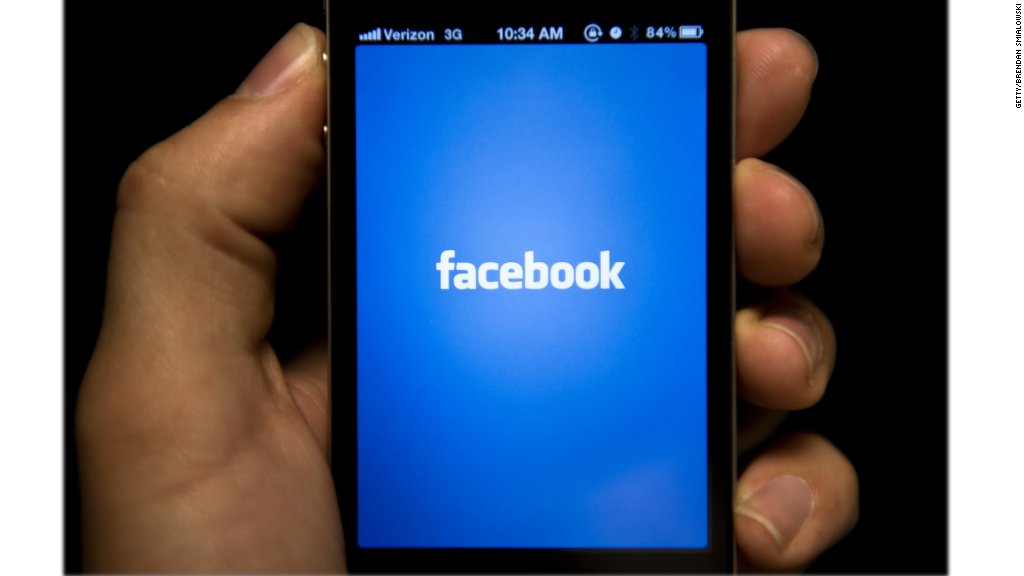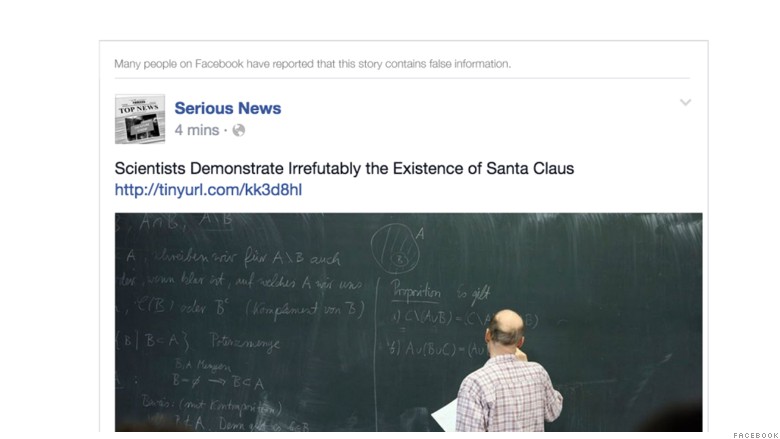
Facebook wants to crack down on the scourge of fake news stories that go viral on the social network.
You've seen them in your feed: false reports of celebrity deaths, conspiracy theories presented as real news, promises of free iPads if you share a link, quotes attributed to the Pope that he never said.
Facebook (FB) hasn't hired a team of dedicated fact checkers to read every article. Instead, it's outsourcing the task to community members with a new feature that lets anyone report news in their feed as a "false news story." The more frequently a particular news story is reported, the less it will appear in anyone's feed on Facebook.
The offending links, photos, videos and status updates won't be removed, just gradually hidden a little more frequently from view. However, if a story gets a large number of flags, it will be marked with a warning message that says, "Many people on Facebook have reported that this story contains false information."

The new expanded menu appears when you click the arrow in the top right corner above a post. In addition to reporting "purposefully fake or deceitful news, a hoax disproved by a reputable source," you can flag stories as spam, pornography, annoying, against your personal views, or violent.
Related: Facebook claims it created 4.5 million jobs
Putting power in the hands of the people has the potential to backfire. Facebook users could band together and report true stories that they disagree with as false.
"I prefer allowing Internet users to have access to everything available without filtering (save for material deliberately intended to be harmful, such as scam- or malware- related posts) and let them decide how they want to deal with it," said David Mikkelson, co-founder of Snopes.com, one of the go-to sites for debunking hoax articles.
People tend to fact check their friends in the comments when they see hoaxes, Facebook said in a blog post announcing the new feature. The social network found that embarrassed users were twice as likely to go back and delete a post after friends called it out as wrong. That could be a sign that the current system takes care of hoaxes naturally.
"A good many people circulating them genuinely have doubts about their authenticity and simply want the reality check of seeing their falsehood confirmed by someone else," said Mikkelson, "Because plenty of seemingly unbelievable news stories do turn out to be true."

